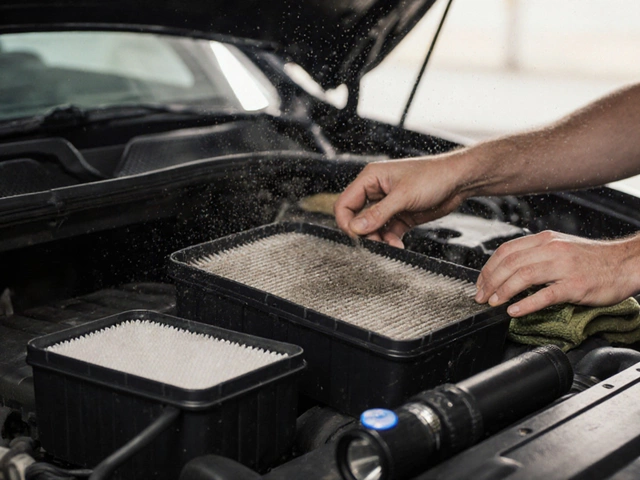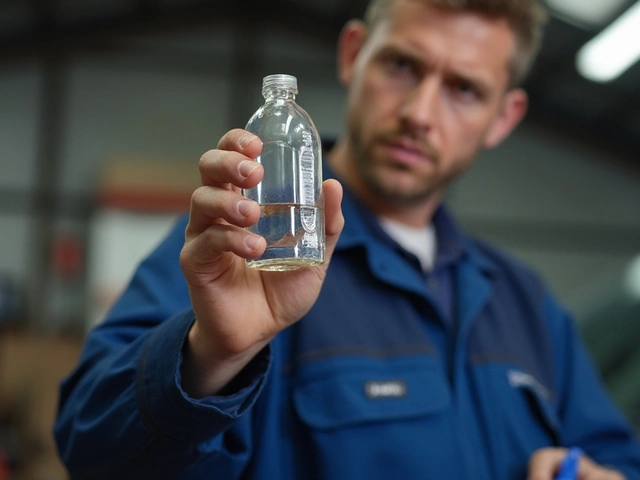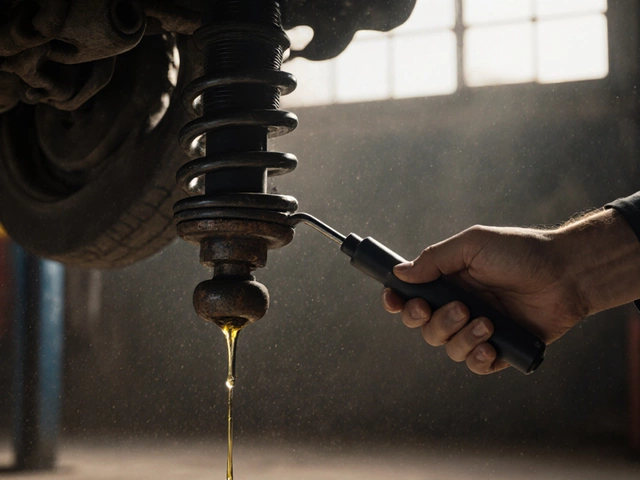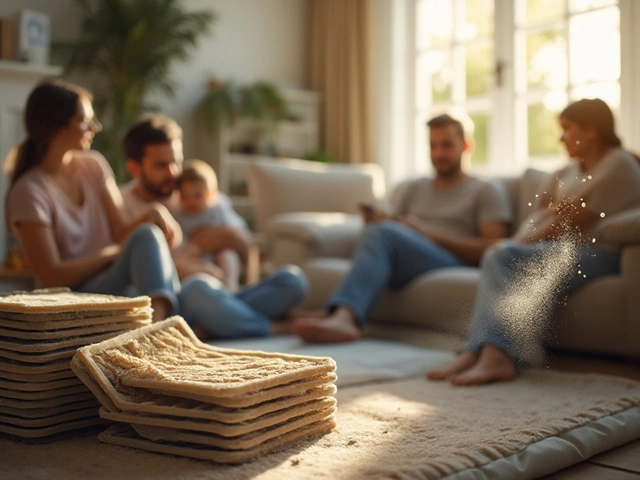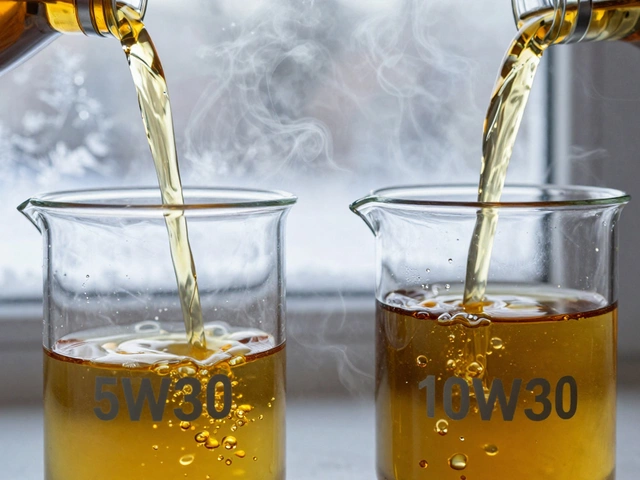Ever wondered if the air you're breathing at home is as clean as it could be? Well, you're not alone. Air filters have become a hot topic, especially with all the talk around indoor air quality. So, what should you be looking at when thinking of getting an air filter?
First off, let's talk about why air filtration matters in the first place. Think about pollutants like dust, pollen, and pet dander floating around. These aren't just annoying; they can seriously affect your health, especially if you or someone in your family has allergies or asthma. An air filter helps catch these particles before they get a chance to irritate your lungs.
But not all air filters are created equal. You've probably heard of HEPA filters, right? They are often considered the top choice because they capture 99.97% of particles that are 0.3 microns or larger. That's impressive! Yet, other options like electrostatic filters and activated carbon ones have their own benefits.
So, how do you decide what's best for you? It depends on things like your budget and specific needs. If you hate the idea of regular filter changes, maybe an electrostatic option, which you can wash and reuse, might sound appealing. But if maximum efficiency is your priority, investing in a good HEPA filter could be the way to go.
- Why Air Filtration Matters
- Types of Air Filters
- HEPA Filters: The Gold Standard
- Electrostatic Filters Explained
- Cost and Maintenance Tips
- Choosing the Right Filter for You
Why Air Filtration Matters
Breathing clean air is something we often take for granted until we start noticing allergy symptoms or air quality alerts pop up. That's where air filters come into play. They’re not just another gadget; they're essential for maintaining good health and comfort indoors.
Health Benefits
One of the biggest reasons to invest in good air filters is the health benefits they offer. They help remove harmful particles like dust, pollen, and pet dander, which can trigger allergies or asthma attacks. For people with respiratory illnesses, clean air is crucial, and an effective air filter can provide a much-needed layer of protection.
Improving Indoor Air Quality
Did you know that indoor air can sometimes be more polluted than outdoor air? That's a bit unsettling, right? Air pollution from outside can enter your home through windows and doors. Plus, everyday activities like cooking, cleaning, or even lighting candles contribute to pollutants in your home.
Well-maintained air filters can trap these pollutants, improving indoor air quality significantly. This not only leads to a healthier environment but can also make your entire home feel more fresh and inviting.
Energy Efficiency
There’s an added bonus: air filters can enhance your heating, ventilation, and air conditioning (HVAC) system’s efficiency. A clean system doesn't have to work as hard, which can save you money on energy bills. Imagine having a filter that's not only purifying your air but also saving you cash—that's a win-win!
Impact of Poor Air Filtration
Now, here's something to think about. If you neglect changing your filters or use low-quality ones, you might end up with poor air flow. This can make your HVAC system wear out faster and can increase the need for costly repairs.
If you've noticed a dusty home or persistent respiratory issues, it might be time to check if your air filters are doing their job.
Types of Air Filters
Choosing the right air filter can feel like navigating a maze, can't it? With so many options out there, it's easy to get overwhelmed. But don’t worry, we’ve got the lowdown on the main types of air filters you’ll come across.
HEPA Filters
Let’s kick things off with HEPA filters. Known as the gold standard in air filters, these guys are designed to trap 99.97% of particles that are as small as 0.3 microns. That means they can snatch up pet dander, pollen, and even some bacteria. If you’ve got allergies or asthma, a HEPA filter might be your best buddy.
Electrostatic Filters
Next up, we have electrostatic filters. You ever rubbed a balloon on your hair and stuck it to the wall? That's kind of how these filters work. They use static electricity to attract dust, smoke, and other particles. The cool part? They’re often washable, so you can reuse them and save some cash in the long run.
Activated Carbon Filters
These filters are like the chameleons of the air filter world. While they don’t grab particles as well as a HEPA filter, they excel at eliminating odors, gases, and volatile organic compounds (VOCs). If cooking smells, pet odors, or fumes are your main concern, an activated carbon filter could be what you need.
Fiberglass Filters
If you’re looking for a no-fuss, inexpensive option, you might consider fiberglass filters. They’re the lightweights in our bunch, capturing bigger particles like dust and debris. While they don’t offer the same level of filtration as a HEPA, they’re a good option for basic use and won’t break the bank.
Pleated Filters
Pleated filters strike a nice balance between efficiency and price. Made from polyester or cotton, these filters have a larger surface area for trapping particles. More surface area means they can filter out more allergens and pollutants. Plus, they’ve got a longer lifespan than plain old fiberglass.
Not sure what suits your space best? Consider what matters most: Are you battling allergies, dealing with smells, or just trying to keep the dust bunnies at bay? The right choice of types of air filters depends on your specific needs and budget. Hopefully, this rundown makes your decision a bit easier.
HEPA Filters: The Gold Standard
When it comes to air filters, HEPA filters are the rock stars of the air filtration world. These filters, which stands for High Efficiency Particulate Air, set the standard for catching even the tiniest particles. We’re talking dust, pollen, pet dander, and even some bacteria.
So, how do they work their magic? Well, HEPA filters use a dense mat of fibers designed to trap pollutants. Officially, a genuine HEPA filter grabs at least 99.97% of particles that are 0.3 microns in diameter. To put it in perspective, a micron is a millionth of a meter - incredibly small!
The Science Behind HEPA
The core of a HEPA filter’s effectiveness lies in mechanisms like interception, impaction, and diffusion, which help it catch particles flowing through the air. It sounds complicated, but the essence is, these processes efficiently snare an astounding variety of pollutants.
Where Do You Find HEPA Filters?
You’ve probably seen HEPA filters pop up in various places, from vacuum cleaners to hospital air systems. This versatility shows their ability to tackle pollutants in all kinds of environments. They’re particularly beneficial if you suffer from allergies or asthma, as they reduce triggers in the air.
Are HEPA Filters Right for You?
If you’re aiming for cleaner, healthier air at home or work, a HEPA filter could be the answer. Especially if you live in a high-traffic area or have lots of pets, the investment pays off with improved indoor air quality.
| Pros | Cons |
|---|---|
| Highly efficient in particle removal | Can be more expensive than other filters |
| Ideal for allergy sufferers | Require regular replacement or cleaning |
To sum it up, while they might cost a bit more upfront, the benefits of breathing cleaner air can be well worth it. Just remember, not all HEPA filters are created equal, so always check for certifications to ensure you’re getting the real deal.

Electrostatic Filters Explained
Alright, let's dive into electrostatic filters. They might sound a bit techy, but they're pretty simple. These filters use static electricity to attract and trap particles from the air. It's a bit like how a balloon can stick to your hair after you've rubbed it on a wool sweater—only without the awkward hair incident.
The main advantage of these air filters is that they are effective at capturing smaller particles like dust and smoke. This is because charged particles latch onto the filter material, reducing airborne allergens and irritants in your home. Pretty neat, huh?
Reusable and Cost-Effective
What makes electrostatic filters stand out is their cost-effectiveness. They're washable and reusable, unlike many other filter types. Just think about the savings! Instead of buying new filters every few weeks, you can simply rinse them clean and pop them back in. Good for your wallet and the environment.
However, it’s important to remember to clean them regularly for them to work effectively. A dirty electrostatic filter won't do much good, and could even restrict airflow if not maintained properly.
Performance and Suitability
While electrostatic filters are efficient at capturing common household particles, they might not be the best choice for everyone. If you have serious allergies or asthma, you might want to consider a HEPA filter instead. These filters are great for average home conditions but may struggle with those tiny particles HEPA filters handle well.
| Type | Efficiency | Maintenance | Cost |
|---|---|---|---|
| Electrostatic Filters | Moderate | High (Requires Regular Cleaning) | Low to Medium (One-Time Purchase) |
| HEPA Filters | High | Low (Regular Replacement) | Medium to High |
Choosing the right filter depends on your home's specific needs and your personal priorities. If you like a balance between efficiency and sustainability, electrostatic could be your go-to. They provide a good bang for your buck while still helping to improve your home's air quality.
Cost and Maintenance Tips
When it comes to air filters, how much they cost and how often they need to be maintained are big questions. Let’s get into it. Your budget and time can greatly influence your choice, but getting the right balance could save you money and hassle in the long run.
Cost Factors
Air filter prices can range from a few pounds to over a hundred. HEPA filters, known for being the gold standard, usually fall on the pricier side. But here's the thing: their high efficiency can mean fewer health-related costs. Brands and sizes impact price too, so always check what fits your air system before buying.
Maintenance Hacks
How do you get the most out of your filter? Well, maintenance is key. Generally, HEPA filters should be changed about every 6-12 months, but those in high-pollution areas might need to replace them more often. Electrostatic filters, on the other hand, can be washed and reused, cutting down long-term costs.
- Set Reminders: Use a calendar reminder to check filters regularly. Out of sight, out of mind, right?
- Visual Inspection: Every month or so, take a quick look. If they look dirty before their time, change or clean them.
- Follow Manufacturer Guidelines: Sounds simple but crucial. Manufacturers know their products best.
Smart Budgeting
While upfront costs can be intimidating, look at the air filter’s efficiency and lifespan. A higher initial investment in a strong air filter can mean fewer replacements, saving you cash over time.
| Type of Filter | Average Cost | Recommended Replacement Frequency |
|---|---|---|
| HEPA | £10-£60 | 6-12 months |
| Electrostatic | £20-£50 | Reusable, clean monthly |
At the end of the day, investing some effort into maintaining your air filters can really pay off. Keeping the air clean not only saves you on medical bills but also boosts your daily well-being. So, it's worth taking some time to evaluate your options and take care of your setup. Trust me, your lungs will thank you!
Choosing the Right Filter for You
So, you're ready to pick an air filter but feeling a bit overwhelmed by all the options? Don't worry; we're here to help you figure out the best fit for your home. Let's break it down so you can breathe easy knowing you've made the right choice.
Understanding Your Needs
First off, consider what's most crucial for your space. Do you have any allergies or asthma sufferers at home? If so, a HEPA filter could be a game-changer since it's known to trap tiny particles like pollen and dust mites efficiently.
Budget Considerations
Money matters, right? While HEPA filters are top-notch, they can be more expensive. If you're on a tight budget, think about alternatives like electrostatic filters, which you clean and reuse. It saves you money long-term and is a bit more eco-friendly.
Maintenance Ease
If you're not keen on regularly changing filters, find a low-maintenance option. Electrostatic filters fit the bill here since they just need to be washed and reused. If you're okay with a bit of monthly upkeep, pleated filters might work for you, as they're relatively inexpensive and capture decent-sized particles.
Room Size and Use
Consider the size of the room you want to filter. For a small bedroom, you might not need anything too fancy. However, for larger spaces like a living room, you'll probably want something more powerful that can handle the extra air volume.
A Quick Comparison
| Filter Type | Efficiency | Cost | Maintenance |
|---|---|---|---|
| HEPA | Very High | High | Monthly Replacement |
| Electrostatic | Moderate | Moderate | Wash and Reuse |
| Pleated | Moderate | Low | Monthly Replacement |
Think about these factors, give it some thought, and you'll be well on your way to finding the most effective air filter for you. It might take a bit of researching and comparing, but your lungs will thank you!


